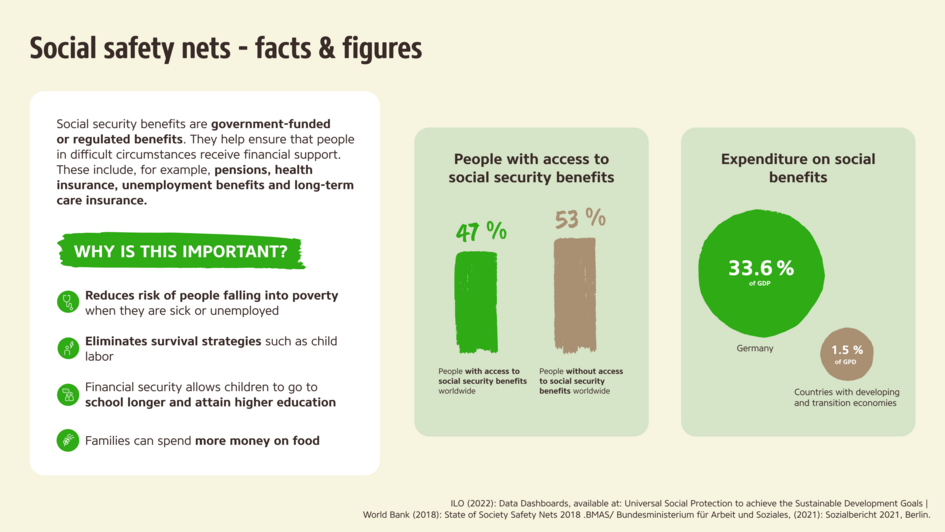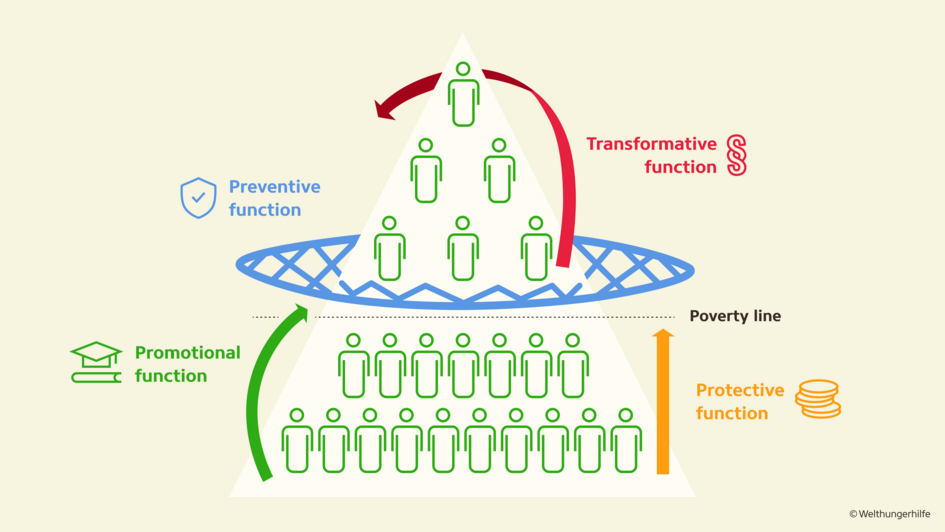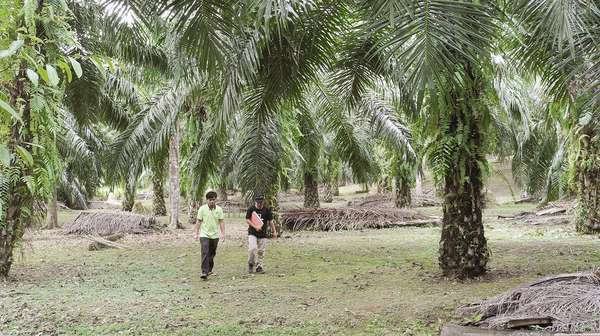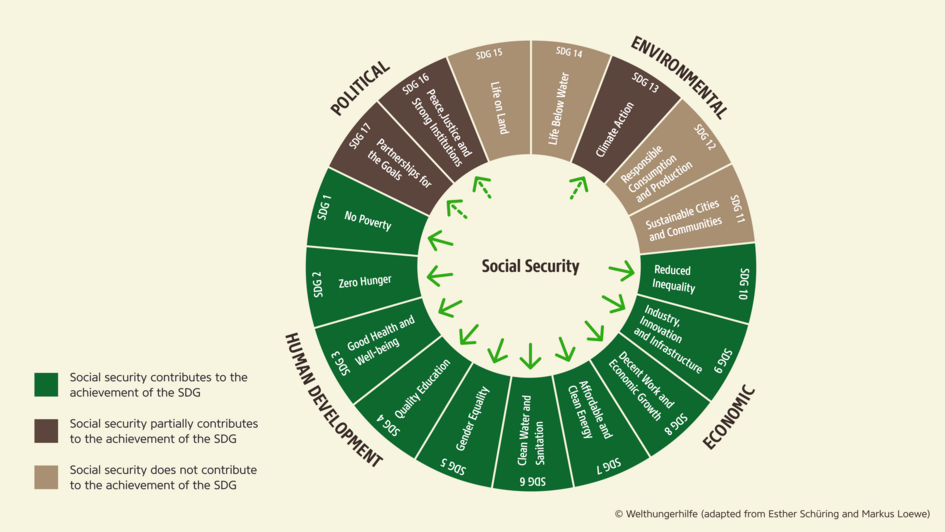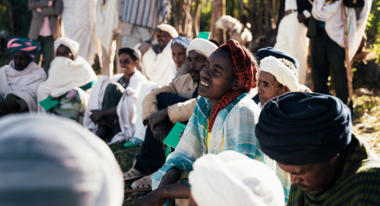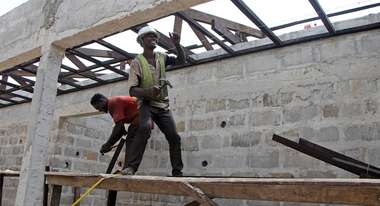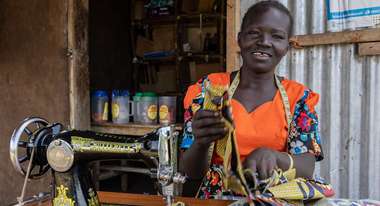Smallholders and farm workers in the Global South are rarely integrated into social security systems and are often affected by hunger. To date, sustainability standards and certification systems have hardly considered such aspects. WHH's Food Security Standard (FSS) closes this gap.
Social Security Systems
Emergency aid, fuel rebates, energy price caps – the German government has put together numerous relief packages to cushion the negative effects of the rapid rise in the cost of living. In other industrialized nations, governments have responded similarly. But people in Global South countries often have to do without such measures. Social security systems offer protection for only a fraction of the population in these countries, which means that poverty and hunger are inevitable.
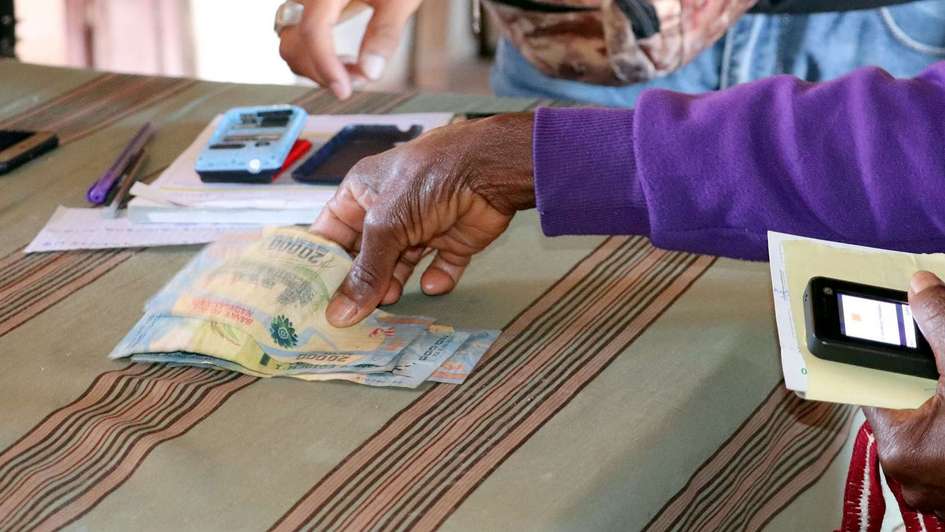
"Zero Hunger": With global Sustainable Development Goal number 2 (SDG 2), the international community has set itself the goal of ending hunger in the world by 2030 and achieving food security for all people. But we are still a long way from achieving this goal. In 2022, the number of acutely hungry people rose to 345 million, 200 million more than before the outbreak of the Corona pandemic. Furthermore, 828 million people suffer from chronic hunger, meaning they do not consume enough calories over long periods. This level of global hunger is also due to the fact that millions of people were already living on the edge of deprivation before the worsening situation of multiple crises (climate impacts, wars, the COVID-19 pandemic). Under these circumstances, events such as a price shock or a natural disaster, but also a case of illness or death in the family, can quickly lead to hardship for the entire household.
Bangladesh: social security benefits are far from sufficient
In Bangladesh, prices for foods such as wheat, lentils, and powdered milk have risen steadily since the start of the Russian war of aggression in Ukraine. This price increase has particularly hurt people with no income and those with small and medium incomes who have lost their jobs because of the COVID-19 pandemic. Although the government has taken measures, including lowering tariffs on food imports or selling subsidized food to vulnerable populations, the initiatives are not sufficient, and some of the food baskets do not reach the people who need them. Also, thousands of people compete for too few products at the points of sale. Moreover, the distribution points are in the cities. As a result, the rural population would have to spend transportation costs and time to obtain subsidized food packages. This is not an option given their low incomes. Since the existing social security benefits are far from sufficient, 1,340 families in Cox's Bazar currently receive food vouchers from Welthungerhilfe (WHH).
Social security as the foundation of sustainable development
Social security systems not only protect households from slipping into poverty in precarious life situations but also pave the way to an adequate standard of living – for example, by making harmful coping strategies superfluous. After all, low-income families often take their children out of school to use their labor to secure their livelihoods, or they find themselves forced to sell important assets such as their livestock.

Social security systems stabilize income flows, thereby strengthening local demand and contributing to regional economic development.
Anne-Catrin Hummel Senior Policy Advisor, WelthungerhilfeSocial security systems stabilize income flows, thereby strengthening local demand and contributing to regional economic development. They enable people to adopt new ways of generating income – for example, to grow riskier but higher-yielding crops, buy machinery, invest in training or start a business. Moreover, low-income households that receive transfer payments spend significantly more on average on food, and thus on food security, than those that do not.
Social security systems thus reduce inequality, strengthen social cohesion and contribute to stability and peace. Hence they are an essential instrument for achieving the global Sustainable Development Goals (SDGs) and the closely related human rights to healthy food, health and an adequate standard of living. They are also a crucial building block in the so-called triple nexus approach combining humanitarian aid, development cooperation, and peacebuilding.
The four functions of social security systems
Governments design social security systems to lift people in the lower part of the income pyramid above the poverty line.
- Protective function: closing the poverty gap through cash assistance or in-kind resources and subsidies.
- Promotional function: risk minimization as a driver for development.
- Preventive function: protection against deterioration of the living situation and slipping into poverty.
- Transformative function: for example, by strengthening workers' rights or changing the legal framework to protect vulnerable groups.
Private sector responsibility
The private sector also bears responsibility for realizing human rights to social security and food. In formalized employment relationships, employers should pay social security contributions on top of adequate wages and support workers in special situations such as pregnancy, illness or old age. Tax payments also enable the respective states to raise financial resources for social security measures. The informal sector, in which around two billion people work worldwide, mostly in developing and emerging countries, and often under inhumane working conditions, poses a particular challenge. Family or neighborhood networks often compensate for missing formal social security mechanisms. However, this is particularly difficult in the case of overarching events such as natural disasters, pandemics or wars and conflicts, that negatively affect the majority of a community.
Enshrined in the national legal system
Only social security programs enshrined in law and in institutions can contribute to food security and poverty reduction in the long term. States have a duty here. They must enshrine the associated human rights entitlements in the (national) legal system, develop strategies and financing plans, and make contribution-financed systems and/or tax-financed programs (such as social assistance, cash assistance, and public work programs) available to the population. They must also inform citizens about these systems and programs and establish monitoring and grievance mechanisms. This is the focus of a WHH project to strengthen good governance for the right to food in rural areas.
Citizens demand access to state social services
In remote rural areas with often inadequate infrastructure (roads, markets, schools, hospitals), people are particularly affected by poverty and malnutrition. Even in countries where social security programs exist, citizens may not know they are entitled to social benefits or how they can claim missing benefits. WHH partner organizations inform the rural population about their rights in their projects in Kenya, Malawi, Burkina Faso, and India. They support village communities and particularly vulnerable groups to access government health services and social assistance. An accountability process reviews the quality of public services based on criteria agreed upon with government authorities. The need for improvement is recorded in a jointly adopted action plan and reviewed regularly. For example, complaints offices have been set up to support families that cannot access the state food rations they are entitled to or widows who have not received their pensions.
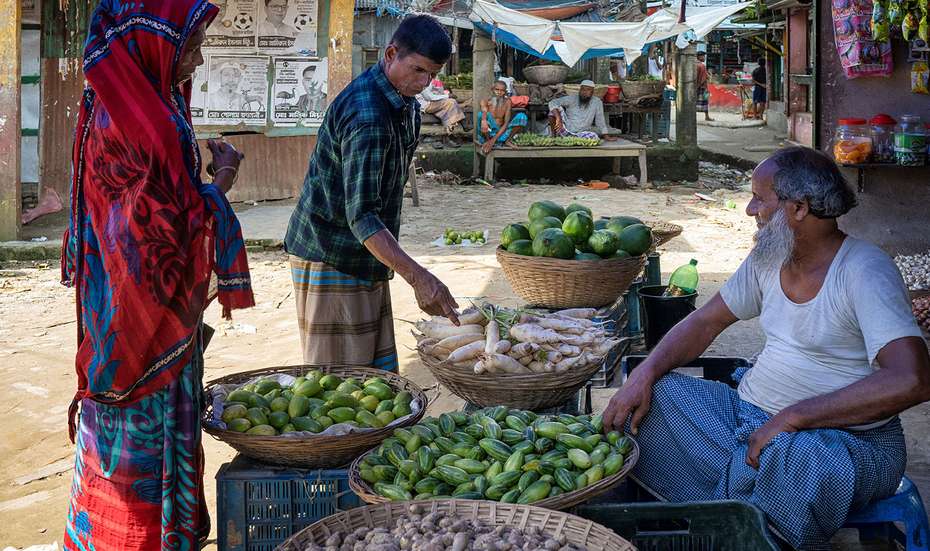
If the state does not provide social security itself in a particular area but relies on third-party benefits (e.g. private health, pension or microinsurance), it must take appropriate regulatory measures to ensure that access to benefits is guaranteed for all segments of the population.
Due to funding constraints in low- and middle-income countries, coordinating the work of all actors and sectors to implement social security and food security systems is a major challenge. Therefore, this task should be a top priority for states, including the German government, and the international community. Universal basic rights apply to every person in the world and can only be fulfilled if all countries work together to uphold them.
Demands for the different actors:
States
The universal right to basic social security should be enshrined in law and institutionally in all countries. Women, in particular, would benefit from this, as they are less likely to be in (official) employment and may have no protection.
To build and implement social security systems and reform weak programs, governments need political will, a systems approach, and financing strategies (including coherent tax systems and programs to address corruption).
Countries in the Global South should use supply chain legislation to introduce minimum social standards. Moreover, the German government's commitment to human rights, due diligence and environmental and social standards in global supply chains must be further expanded.
International organizations and NGOs
People in emergency situations who cannot expect assistance from their governments must receive immediate emergency aid in the form of food, material resources and cash assistance, in accordance with humanitarian principles.
NGOs can help people learn about, apply for, and claim the social benefits to which they are entitled (rights-based approach).
Private sector
Companies must assume social responsibility for their employees – they must pay social security contributions and tie their employees to health insurance and pension systems.
Companies can make a critical contribution to expanding social security systems by paying taxes in the countries where they operate and demanding from the governments that social security systems cover their employees.





